Why Multicultural Humility Is Essential for California Clinicians in 2025
California is one of the most culturally diverse states in the USA, home to people from a broad spectrum of ethnic, racial, linguistic, and cultural backgrounds. For clinicians practicing in this vibrant state, developing multicultural humility is not just beneficial—it’s imperative to delivering effective, empathetic, and respectful care.
At The Cave Clinical Services, we understand that the future of healthcare lies in culturally sensitive practices that acknowledge and honor diverse patient identities. Multicultural humility training equips clinicians with the mindset and skills necessary to improve communication, reduce disparities, and foster trust with patients from all walks of life.
In this comprehensive guide, we will explore what multicultural humility entails, why it’s critical for California clinicians, and how training programs can transform your clinical practice in 2025 and beyond.
Understanding Multicultural Humility: Beyond Cultural Competency
Defining Multicultural Humility in Clinical Care
Unlike traditional cultural competency, which focuses on acquiring knowledge about different cultures, multicultural humility emphasizes a lifelong process of self-reflection, openness, and respect for patients’ cultural identities. It acknowledges that no clinician can master every culture but can commit to learning from patients’ experiences and perspectives.
Key Components of Multicultural Humility
- Self-awareness: Recognizing your own cultural biases and assumptions
- Openness: Being curious and nonjudgmental toward different cultural practices
- Mutual respect: Valuing patients as experts of their own experience
- Collaborative partnership: Co-creating care plans that honor cultural contexts
The Critical Need for Multicultural Humility Training Among California Clinicians
California’s Demographic Landscape Demands Culturally Sensitive Care
With over 200 languages spoken and ethnic communities ranging from Latino and Asian to Native American and Pacific Islander, California’s patient population is a microcosm of global diversity.
Clinicians trained in multicultural humility are better prepared to navigate cultural nuances, language barriers, and health beliefs that influence patient behaviors and treatment outcomes.
Reducing Health Disparities Through Cultural Sensitivity
Research consistently shows that patients who perceive cultural understanding from their providers experience higher satisfaction, better adherence to treatment, and improved health outcomes.
Multicultural humility training reduces implicit bias, promotes equity, and helps dismantle systemic barriers in healthcare delivery.
The Cave Clinical Services specializes in delivering evidence-based training to empower California clinicians to bridge these gaps effectively.
Understanding What California Clinicians Search for in Multicultural Training
To effectively reach and engage California clinicians seeking multicultural humility training, it’s essential to recognize the specific language and queries they use when searching for educational resources. By focusing on authentic, that reflect clinicians’ real concerns and learning goals, training programs can better align their content and outreach efforts. These targeted search terms not only improve visibility in search engines but also ensure that the training addresses the nuanced needs of diverse healthcare professionals across California. At The Cave Clinical Services, we integrate these insights to design relevant and impactful multicultural training that resonates deeply with clinicians committed to culturally sensitive care.
Components of an Effective Multicultural Humility Training Program for Clinicians
Comprehensive Self-Reflection Exercises
Effective programs begin by guiding clinicians through introspective activities designed to uncover personal biases, assumptions, and cultural blind spots.
Interactive Workshops and Role-Playing Scenarios
Hands-on learning opportunities—such as simulated patient interactions—allow clinicians to practice culturally responsive communication in a safe, supportive environment.
Language Access and Communication Strategies
Training includes techniques to overcome language barriers, utilize interpreters effectively, and ensure clear, compassionate dialogue.
Systemic and Structural Competency
Clinicians learn to recognize how social determinants of health and systemic inequities affect patient wellbeing and care access.
How Multicultural Humility Improves Clinical Outcomes in California
Building Patient Trust and Engagement
Patients who feel seen and respected culturally are more likely to share vital information, follow medical advice, and maintain continuity of care.
Enhancing Diagnostic Accuracy and Treatment Plans
Understanding cultural contexts can reveal symptoms or health beliefs that influence diagnoses and shape effective treatment pathways.
Supporting Mental Health Through Cultural Sensitivity
In diverse populations, mental health stigma varies widely. Multicultural humility helps clinicians provide tailored mental health support that honors patients’ cultural frameworks.
The Role of Continuing Education and Certification in Multicultural Humility
Meeting California State Licensing Requirements
Many California medical boards and professional organizations now require ongoing cultural humility training as part of license renewal and professional development.
Certifications That Validate Clinical Cultural Proficiency
Clinicians can earn credentials demonstrating their commitment to culturally sensitive care, enhancing their professional reputation and patient trust.
Implementing Multicultural Humility Training at Your Practice with The Cave Clinical Services
Customized Training Tailored to Your Clinical Setting
The Cave Clinical Services designs programs that fit the unique needs of hospitals, clinics, private practices, and community health centers across California.
Measurable Outcomes and Ongoing Support
Our training includes assessment tools to track progress and provides continued coaching to embed humility into daily practice.
Future Directions: Multicultural Humility as a Standard of Care in California by 2025
Integration Into Medical School Curriculums
Leading California medical schools are incorporating humility training early to prepare future clinicians for culturally responsive care.
Policy Shifts Toward Equity-Focused Healthcare
Government agencies and insurers are incentivizing practices that demonstrate cultural humility to improve population health outcomes.
Conclusion: Elevate Your Clinical Practice with Multicultural Humility Training in California
As California’s diversity continues to grow, clinicians must evolve to meet the needs of all patients with respect and cultural humility.
The Cave Clinical Services offers transformative multicultural humility training that equips California clinicians to provide empathetic, effective, and equitable care—ultimately improving patient outcomes and fostering healthier communities.
Investing in this training is an investment in your patients, your profession, and the future of healthcare in California.
Reach out to The Cave Clinical Services today to begin your journey toward cultural humility and excellence in clinical care.
FAQs: Multicultural Humility Training for California Clinicians
What distinguishes multicultural humility from cultural competency?
Multicultural humility focuses on ongoing self-reflection and respect for individual patient experiences, whereas cultural competency emphasizes knowledge acquisition about cultures.
How long does multicultural humility training typically last?
Programs vary from short workshops (a few hours) to extended multi-session courses, depending on depth and clinical needs.
Is this training mandatory for all clinicians in California?
While not universally mandated yet, it is increasingly encouraged and required by many healthcare organizations and licensing boards.

